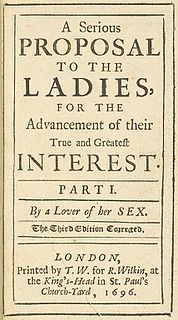A Quote by Marcus Tullius Cicero
It is virtue, virtue, which both creates and preserves friendship. On it depends harmony of interest, permanence, fidelity.
Related Quotes
lf the attribute of popular government in peace is virtue, the attribute of popular government in revolution is at one and the same time virtue and terror, virtue without which terror is fatal, terror without which virtue is impotent. The terror is nothing but justice, prompt, severe, inflexible; it is thus an emanation of virtue.
If love is the soul of Christian existence, it must be at the heart of every other Christian virtue. Thus, for example, justice without love is legalism; faith without love is ideology; hope without love is self-centeredness; forgiveness without love is self-abasement; fortitude without love is recklessness; generosity without love is extravagance; care without love is mere duty; fidelity without love is servitude. Every virtue is an expression of love. No virtue is really a virtue unless it is permeated, or informed, by love.
Justice in the individual is now defined analogously to justice in the state. The individual is wise and brave in virtue of his reason and spirit respectively: he is disciplined when spirit and appetite are in proper subordination to reason. He is just in virtue of the harmony which exists when all three elements of the mind perform their proper function and so achieve their proper fulfillment; he is unjust when no such harmony exists.
Virtue is the panacea for both body and mind. The virtuous person can be both healthy and happy. How is virtue to be cultivated? How can it express itself in daily practice? Through service to living beings, through seva. Virtue must flow through the triple channel of love, mercy and detachment, in order to feed the roots of seva.
Spirituality is not a question of morality, it is a question of vision. Spirituality is not the practising of virtues - because if you practise a virtue it is no longer a virtue. A practised virtue is a dead thing, a dead weight. Virtue is virtue only when it is spontaneous; virtue is virtue only when it is natural, unpractised - when it comes out of your vision, out of your awareness, out of your understanding.











































